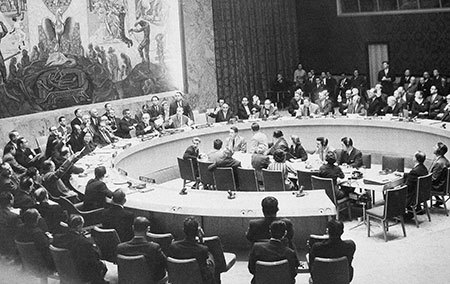#ukhistory
Explore tagged Tumblr posts
Text

Captured by Philip Jones Griffiths in Middlesbrough, 1976. #Photography #UKHistory
35 notes
·
View notes
Text



On May 12, from the birth of a healthcare visionary to a royal ascension and a leap in printing technology, today we celebrate milestones that have shaped our history.🏥👑🖨️
Follow👉 @biographiness
#Biographiness#Biograghines#TodayInHistory#TIH#OnThisDay#OTD#HistoryEvents#DailyHistory#HistoryFacts#May12#HistoryMatters#History#Legacy#Innovation#Royalty#HistoryInOne#MilestoneMoments#PioneeringSpirits#ThrowbackTriumph#HistoricMay12#TimelessTales#EpicAnniversaries#NursingHero#HealthcareHistory#Florence1820#PrintingBreakthrough#MergenthalerPatent#GeorgeVI#RoyalCoronation#UKHistory
2 notes
·
View notes
Text
youtube
Where Did They Go? 🤔
#Youtube#isle of wight#wightwanderer#ukhistory#railwaysuk#tube trains#heritage#underground#island line
1 note
·
View note
Text
The Suez Crisis of 1956
As a British nationalist, I must confront an uncomfortable truth: the Suez Crisis 1956 was a watershed moment when Britain, once the world’s preeminent power, faced the harsh reality of its diminished global standing. That fateful period saw Britain falter on the world stage and lose much of its grip on the illusion of imperial dominance.
The Crisis Unfolds
On July 26, 1956, Egyptian President Gamal Abdel Nasser announced the nationalization of the Suez Canal, previously owned and operated by the Suez Canal Company, a Franco-British enterprise. For Britain, the canal was more than a strategic asset—it was a lifeline to the Empire, connecting Europe to vital colonies and oil supplies in the Middle East. Nasser’s bold move was perceived as a direct challenge to British authority.
The ensuing weeks were marked by diplomatic wrangling, covert planning, and military posturing. Prime Minister Anthony Eden, a staunch believer in Britain’s imperial legacy, saw Nasser’s actions as intolerable. Alongside France and Israel, Britain hatched a plan to regain control of the canal. The strategy was clear: Israel would invade the Sinai Peninsula, and Britain and France would intervene under the guise of peacekeeping, seizing control of the canal in the process.

The Illusion of Power
On October 29, 1956, the plan was set into motion. Israeli forces attacked the Sinai, and Britain and France issued ultimatums, which Nasser predictably rejected. Airstrikes and landings followed, but instead of showcasing British strength, the intervention highlighted its vulnerabilities.
The United States, under President Eisenhower, condemned the operation. Eisenhower, wary of Soviet exploitation of the crisis amidst the Cold War, pressured Britain and its allies to withdraw. The financial strain of the operation compounded the issue. Facing a collapsing pound and a lack of American support, Britain had no choice but to abandon the campaign. By March 1957, British troops had withdrawn.
A Humbling Defeat
The Suez Crisis was not just a military setback; it was a blow to Britain’s pride and prestige. For centuries, Britain had projected an image of unassailable authority. The events of 1956 shattered that illusion. The country was forced to reckon with a new world order where the United States and the Soviet Union held the reins of power, relegating Britain to the status of a secondary player.
For Eden, the crisis marked the end of his political career, his reputation was irreparably damaged. For Britain, it signalled the twilight of the empire. The humiliation at Suez accelerated decolonization, with countries in Africa, Asia, and the Caribbean pushing harder for independence.

Reflections on What Was Lost
As a nationalist, it is painful to look back on Suez and not feel a sense of loss—loss of influence, loss of unity, and loss of the boldness that once defined our nation. The crisis underscored how much had changed since the days of Victoria’s empire. It revealed the cracks in the foundation of British power, forcing us to confront the limitations of our ambitions.
Yet, amidst the gloom, there is a lesson. The Suez Crisis, while a defeat, should remind us of Britain’s capacity for reinvention. From the ashes of empire, the country forged a new path, albeit a humbler one, grounded in soft power, diplomacy, and economic resilience.
In the end, Suez remains a cautionary tale: a reminder of the costs of overreach, the importance of alliances, and the need for pragmatism in a rapidly changing world. For those of us who still believe in Britain's greatness, it is a chapter worth studying—not just as a lament for what was lost but as a guide for how we might reclaim a new kind of leadership in the modern era.
#SuezCrisis#BritishHistory#1956#PostEmpireBritain#GamalAbdelNasser#AnthonyEden#BritishDecline#ColdWarPolitics#ImperialLegacy#MiddleEastHistory#BritishNationalism#AngloFrenchRelations#Decolonization#GlobalPolitics#SuezCanal#UKHistory#Eisenhower#MilitaryHistory#LossOfEmpire#LessonsFromHistory#new blog#today on tumblr
0 notes
Text
youtube
10 Interesting Facts About in London | Discover the Secrets of the UK’s Capital | Life Travel https://expedia.com/affiliate/FcShfVq https://airalo.tp.st/UYXhV3Jr http://knowledgeglaxy.com/travels/
Hello and Welcome to another video of Life Travels! 🌍 London, the vibrant capital of the United Kingdom, is a city full of history, culture, and intriguing stories. But how much do you know about this iconic metropolis? Join us as we uncover 10 Amazing Facts About London that will deepen your love for this incredible city!
Highlights Include:
The city’s ancient Roman roots and its original name. The Tower of London’s resident ravens and their mysterious role. Why Big Ben isn’t actually the name of the clock. London’s secret underground mail railway. The hidden history of London’s oldest pubs. Which fact blew your mind the most? Share your thoughts in the comments! Don’t forget to like, share, and subscribe to Life Travels for more fascinating insights into the world’s greatest cities.
#LondonFacts#AmazingLondon#LifeTravels#ExploreLondon#UKHistory#TravelLondon#LondonSecrets#Wanderlust#Youtube
0 notes
Text

OUR FLAG DOESN'T FLY FROM THE WIND MOVING IT.
IT FLIES FROM THE LAST BREATH CF EVERY SOLDIER THAT DIED DEFENDING IT!
#today on tumblr#UnionJack#BritishFlag#UKFlag#UnitedKingdom#FlagOfBritain#UKSymbol#GreatBritain#BritishHeritage#BritishPride#FlagOfTheUK#UnitedKingdomFlag#IconicFlag#UKHistory#BritishCulture#BritishIdentity#NationalSymbol#FlagDesign#UnitedKingdomSymbol#EnglandFlag#FlagOfNations
1 note
·
View note
Photo
I can do Better

Today marks 122 years since Queen Victoria died thus ending her remarkable reign and ushering in a new reign led her by her eldest son and heir Albert Edward who would become King Edward VII only ruling for nine years before he would be succeeded by his only surviving son and heir George V would not only lead England through World War I but also peace while at the same time changing the name of the family house from his father and grandfather Saxe-Coburg Gotha to Windsor as a means of trying to heal in the country together during the brutal years of World War I. What none of them knew was that George’s eldest son and heir Edward would throw the dynasty into a crisis by abdicating the throne just 35 years later to marry Wallis Simpson which ultimately led to his second son succeeding and his daughter who was their descendant Elizabeth Alexandra Mary passing Victoria and her reign to become the longest reigning monarch in history. All three of them would be proud of her especially Victoria as she was able to do exactly what she did which was put The Crown first just like Charles and William are doing right now during a time of crisis. I highly recommend that everyone find and watch Private Lives of The Monarchs on Queen Victoria and also the TV series Victoria. #ukmonarchy #ukhistory #britishroyalfamily #queenvictoria #queenvictoriaofengland #kingedwardvii #edwardvii #georgev #kinggeorgev https://www.instagram.com/p/CnvPoAuON1uE8ohWV7FyXVXB_JXVtEMu6Nyr7k0/?igshid=NGJjMDIxMWI=
#ukmonarchy#ukhistory#britishroyalfamily#queenvictoria#queenvictoriaofengland#kingedwardvii#edwardvii#georgev#kinggeorgev
1 note
·
View note
Text
This week at the Pages of Creative History I've taken a journey back in time to the 14th century and am reading "In the Wake of the Plague: The Black Death and the World it Made" which was originally published in 2001 and written by Norman F. Cantor who is, quite possibly, the leading American #medieval #historian of the past 100 years and an excellent narrative writer in his own right.
Mr. Cantor is best known for his magisterial survey of medieval history entitled "The Civilization of the Middle Ages" but his much shorter "In the Wake of the Plague" is a more accessible work for a general audience and though written 25 years ago is tremendously important for today's society in the Wake of the #COVID19 #pandemic. Norman Cantor passed away in 2004 after a lengthy career as an influential historian and writer. Many of Cantor's ideas on medieval #history caused quite a stir in the academic community when they were written and continue to do so today.
In, "In the Wake of the Plague" Mr. Cantor postulates that the #blackdeath in Europe may have been caused by the spread of #anthrax or some other respiratory #virus that jumped from animals to humans not unlike today's #BirdFlu, a theory that runs counter to traditional #historiography that attributes the Black Death to an outbreak of #bubonicplague spread through the fleas of rodents.
In the Wake of the Plague is a short work---barely over 200 pages---and it is made up of separate vignettes that detail the lives of those in the medieval world who were left behind and had to pick up the pieces after history's most deadly pandemic. It is highly recommended by Creative History and though over 20 years old it remains a very prescient and pertinent work of narrative history today.
@topfans
#middleages #europe #england #englishheritage #ukhistory #france #frenchhistory #bookreview #bookrecommendations #bookstagram #booklover #historymatters #historylovers #InTheNews #HistoryUncovered #medievalhistory #medievalworld

0 notes
Text
On this #FindOut Friday, we are looking at child marriage Grace O'Malley and generational trauma. You can read the answers here: https://shorturl.at/vcsjj
#TriviaGame #TheAnswers #History #UKHistory #IrishHistory #Psychology #Trauma #Tragedy #BookSeries #IndieAuthor




0 notes
Text
#foryou#foryoupage#foryouviralvideo#funnyvideo#shortrvideo#viralvideo#ImACeleb#engire#UFC309#TheGirlsAloudShow#GrandSlamofDarts#England#Ireland#Chiefs#Russia#Bluesky#Wembley#Rwanda#Biden#Pogba#Ukraine#Bills#Cheltenham#Bengals#WagathaChristie
0 notes
Text
#Mac Miller#UFC309#Strictly#Serrano#Bluesky#ENGvRSA#$catex#Onama#Llontop#Ruffy#Tatum#$XDC#Gracie#MissUniverse2024#boybandsforever#Martinez#Ramirez#Jayce#LeBron#Boxing#Allison#Pogba#Romero#Wynne#Dianne#Tommy Fury#Children in Need#Pet Shop Boys#TV Burp#Harry Hill
0 notes
Text
#Caturday#JakePaul#MatchDay#Arcane#SaturdayKitchen#Babar#Jayce#UKGiftAM#GameDay#AUSvPAK#Rizwan#Vander#Taylor#Boxing#Llandudno#Tony#Cait#Maddie#Shaheen#Hes58#YouTuber#Jinx#TommyFury#AllisonPearson#FATrophy#Logan#Mandelson#Canelo#MuhammadAli#Ofsted
0 notes
Text
#EastIndiaDock#Caturday#Arcane#JakePaul#MATCHDAY#Babar#SaturdayKitchen#Rizwan#Jayce#AUSvsPAK#UKGiftAM#GAMEDAY#Llandudno#Vander#Hatton#maddie#Taylor#Exeter#FATrophy#Shaheen#cait#Tony#Boxing#Mandelson#Logan#Jinx#TommyFury#AllisonPearson#YouTuber#WelshLabour
0 notes
Text
youtube
The Forgotten GHOST Station on the Isle of Wight Coast 👻
#isle of wight#heritage#history#abandoneduk#lost railways#steam train#locomotive#victorian#ukhistory#Youtube
1 note
·
View note
Text
Ulster Day 2024
On September 28th, 1912, a significant chapter in Ulster's history was written. Over 471,000 men and women from the northern province of Ireland signed the Ulster Covenant and Declaration, pledging to resist Home Rule for Ireland. This day, now known as Ulster Day, stands as a powerful testament to the strength of unionist convictions, a day for commemorating loyalty, identity, and the enduring legacy of the Ulster people.
As we mark Ulster Day in 2024, 112 years since the signing of the Ulster Covenant, it's essential to reflect on both the historical context and the current significance of this event. The signing was a reaction to the growing momentum for Irish independence and the potential for Northern Ireland to be drawn into a Home Rule parliament that threatened the Union with Great Britain. The resolve of those who signed the Covenant whether from cities like Belfast or rural counties like Fermanagh highlighted their firm belief in maintaining their British identity and allegiance to the Crown.
The Ulster Covenant was no minor political gesture; it embodied a clear and unified message: Ulster’s people would stand together, unwavering in their commitment to the Union. Their stance against Irish Home Rule was not just about politics but also about culture, religion, and a way of life deeply intertwined with British values.
In 2024, Ulster Day still resonates with the unionist community, serving as a reminder of the struggles faced by their forebears. Yet, the landscape has changed dramatically. Northern Ireland is now part of a devolved administration within the United Kingdom, and though the political environment has evolved, the question of identity remains central.
For many, Ulster Day continues to symbolize the unique cultural fabric of Northern Ireland—a place where Britishness, Irishness, and Ulster identity converge in complex, sometimes contentious, ways. It's a day to celebrate the heritage and history of those who signed the Covenant and reflect on how that legacy has shaped modern Northern Ireland. It’s also an opportunity for the broader United Kingdom to remember the pivotal role Ulster has played and continues to play in the union.
As unionists, we hold this day not just to remember the past but to reaffirm our commitment to the future of Northern Ireland within the United Kingdom. The Covenant was more than words on paper; it was a pledge to future generations that the bond with Great Britain would be safeguarded.
One of the most remarkable things about Ulster Day is how it transcended social and class barriers.
The Covenant was signed by people from all walks of life—industrial workers, farmers, professionals, and clergymen. It showed that when the stakes were high, Ulster’s people could unite for a common cause. This unity is something to celebrate today, as Northern Ireland continues to be a place of diverse backgrounds and perspectives, yet united in its place within the United Kingdom.
For those of us who celebrate Ulster Day in 2024, it's an opportunity to look at the challenges and triumphs that lie ahead. The preservation of our unionist heritage does not mean standing still in history, but understanding that the values of loyalty, resilience, and unity are still as important now as they were in 1912.
As we look ahead, we must continue to ensure that Northern Ireland thrives as a key part of the UKeconomically, socially, and culturally. Much like our ancestors did on that momentous day in 1912, we must continue to take an active role in shaping the future we want to see.
Ulster Day 2024 is more than just a remembrance of the past; it is a celebration of what makes Northern Ireland and its people unique. Whether we are reflecting on the historical significance of the Ulster Covenant or looking toward the future with renewed determination, this day is a symbol of unity in diversity, resilience in adversity, and, above all, the enduring spirit of Ulster.
So, as we commemorate this important day, let us not just honour the legacy of those who came before us, but also commit to building a strong, secure, and united future for all who call Ulster home.
#UlsterDay#Unionist#NorthernIreland#UlsterPride#UnionistHistory#Loyalty#BritishIdentity#UlsterCovenant#1912Covenant#UKHistory#UnionStrong#UlsterHeritage#NorthernIrishCulture#BritishUnionism#UlsterTradition#UlsterLegacy#UnionistCommunity#UlsterDay2024#ProudToBeUnionist#NorthernIrelandUnionist#today on tumblr#new blog
0 notes
Text
#AUSvPAK#HarisRauf#Rizwan#Babar#مطالبہ_ایک_خان_کی_رہائی#SufyanMuqeem#Shaheen#Abbas#JusticeFor9thMay#PaulTyson#DetoxLahore#JakePaul#UsmanKhan#Australia#Pakistan#JayShah#T20I#IPTV#Haram#CouncilOfIslamicIdeology#Threads#Brazil#Maxwell#Bangladesh#Bluesky#Rizbar#Saim#PrinceWilliam#Prayers#Ronaldo
0 notes